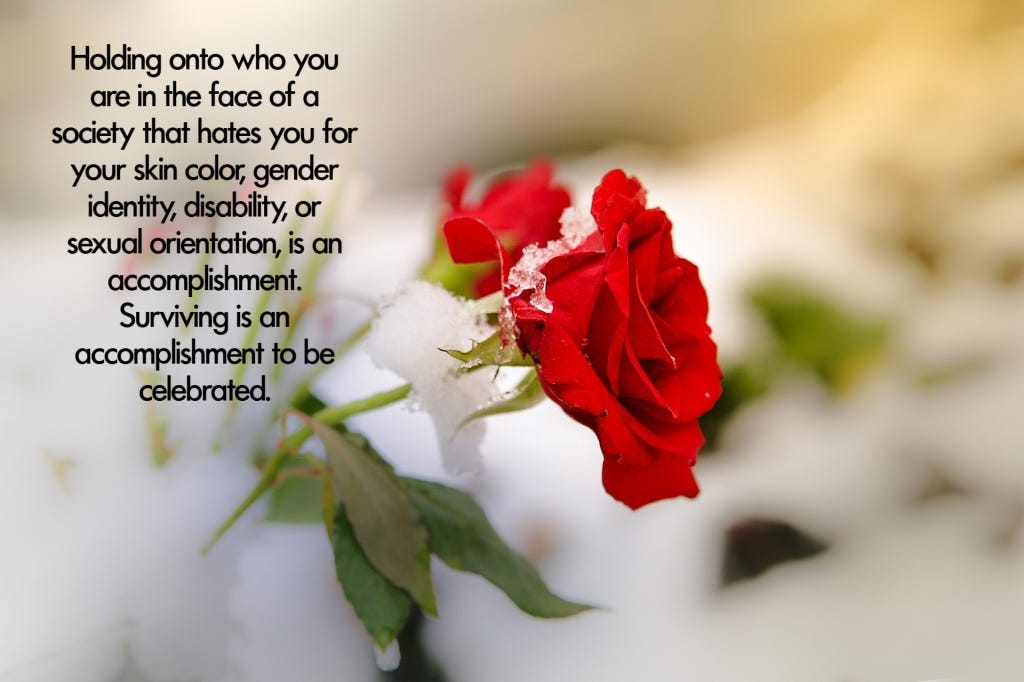Day 18: Yes I am Proud and Unashamed
#RethinkChurch is doing a 22-day journey for self-reflection based on John Wesley’s 22 questions. I am composing short blog posts addressing each question. I am using these posts to encourage Christians, especially Progressive and Mainline Christians to reflect deeply on what it means to be Church in a world marred by oppression and violence.
Day 18: Am I proud?
Pride is often depicted in its most negative form: arrogance. I think we all know people that believe that their successes are based solely on their individual effort and that they received no help from other people. Moreover, some of the most mediocre people in power tend to believe that they are much more impressive and important than they really are. This version of pride, which merges with arrogance and vanity needs to be avoided.
But pride can also be a good thing. In fact, while some people suffer from an overabundance of pride and confidence, many others suffer from an inability to be proud of themselves. This is especially true for women and people from marginalized groups. Society and specific institutions often tell women and people of color that their successes are simply the result of affirmative action while their failures can only be attributed to their individual weakness or lack of intelligence.
Moreover, society has a narrow understanding of success based primarily on status and wealth. Even though there are very real structural barriers and obstacles that prevent many people from achieving this sort of success, society continues to depict wealth and status as an individual achievement that can be accessible to all, if only they tried hard enough.
Even institutions that claim to be based on meritocracy such as academia or who assert that they do not measure success by society's -such as the Church (well except those that adhere to the prosperity gospel) still portray success in ways that alienate and shut out marginalized groups.
For instance, both academia and the Church both conflate success with the status quo. Black and Brown people, as well as those part of the LGBTQ+ community and the disabled already do not fit into these institutions' notions of what successful people look in. The Church and academia may declare a few individuals from these marginalized groups as fitting into their image of success in order to demonstrate that their standards of success are fair. But people from marginalized groups who dare raise their voices about racism, ableism, and prejudice in these institutions are often decried as unprofessional, “difficult” and painted as failures. They are made to feel ashamed because they do not fit into society’s dominant vision of success.
I am writing this post to say that, yes, I am PROUD of myself for still surviving in a world that constantly devalues me because of my skin color, my sexuality, and my gender. I am a Brown, Bisexual, outspoken woman that has had to spend the majority of my life navigating predominately white institutions that reinforce the status quo.
Like most people from marginalized groups, I have had to navigate institutions that want to silence Black and Brown people, disabled people, Queer and trans people, and prevent them from speaking out against the injustice that they experience on a daily basis.
I am tired of being told I am wrong for objecting to the racism, sexism, homophobia and transphobia that are an inherent part of many institutions in the US. I am tired of being portrayed as the problem for publicly demanding that the Church and other institutions do better and be better.
I know my story is not unique. People from marginalized groups are expected to keep our head down and be grateful when those in positions of power give us a few bread crumbs. We are made to feel ashamed when we can’t fit into the arbitrary and racist standards that many of these institutions uphold. We are deemed to be failures and “difficult.”
But the reality is, we aren’t the problem. And we have a lot to be proud of and we should unabashedly shout those accomplishments from the rooftops. And I don’t necessarily just mean “tangible” accomplishments such as degrees or jobs, though those should be celebrated, but just holding onto who you are in the face of a society that hates you for your skin color, gender identity, disability, or sexual orientation, is an accomplishment. Surviving is an accomplishment to be celebrated.
So, am I proud? Damn right. And you should be too.
Day 1: Illusions of Perfection
Day 2: The Dangers of Embellishment
Day 3: Loose Lips Sink Ships or Silence Kills?
Day 5: The Oppression of Professionalism
Day 6: Mental Illness and Distorted Thinking
Day 8: Making Sense of the Bible
Day 9: Praying to Cosmic Santa Clause
Day 10: The Importance of Talking…and Listening
Day 11: The Necessity of Economic Justice
Day 12: The Sacredness of Rest
Day 13: Obeying the Greatest Commandments
Day 15: For the Brokenhearted…



